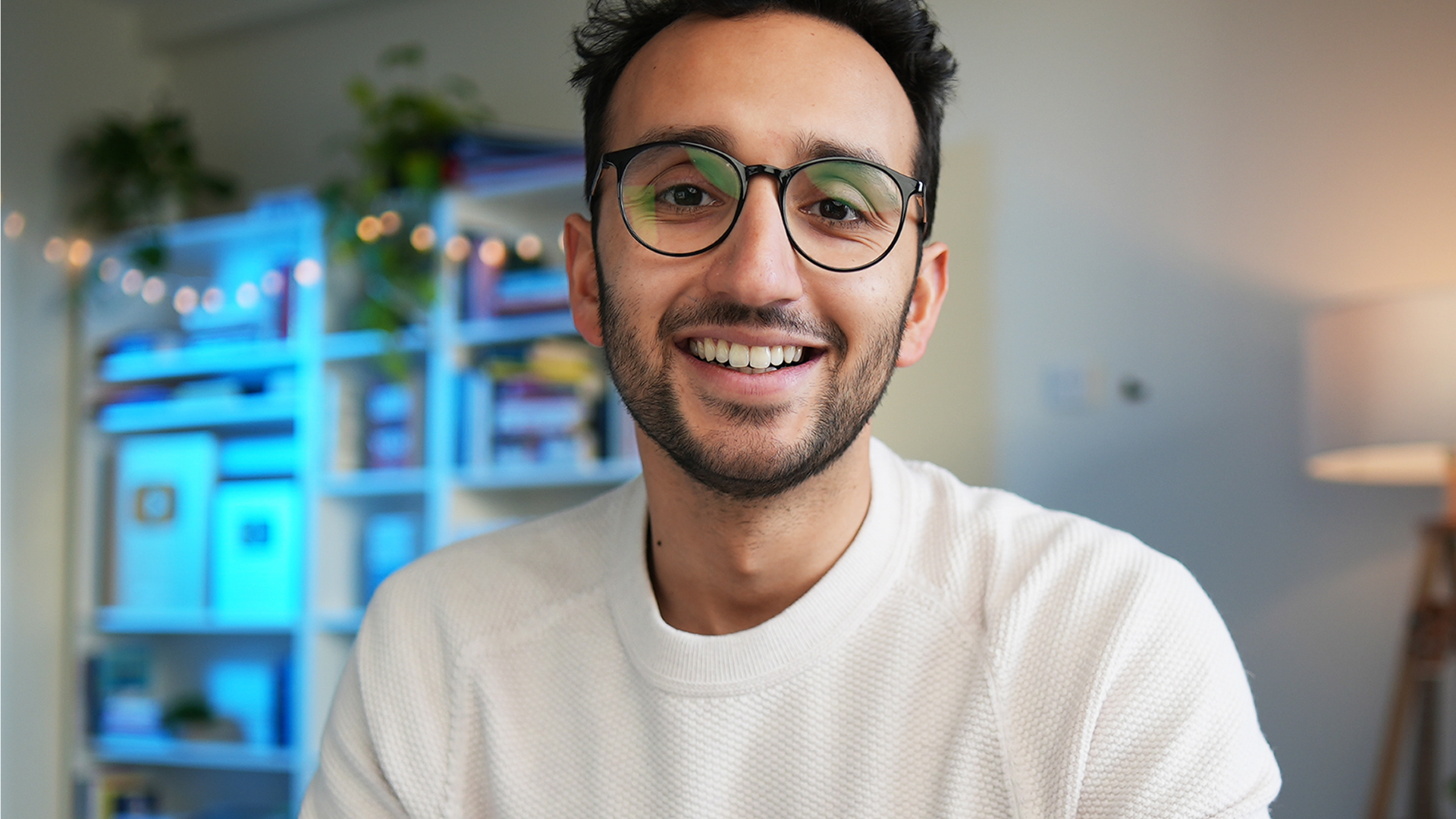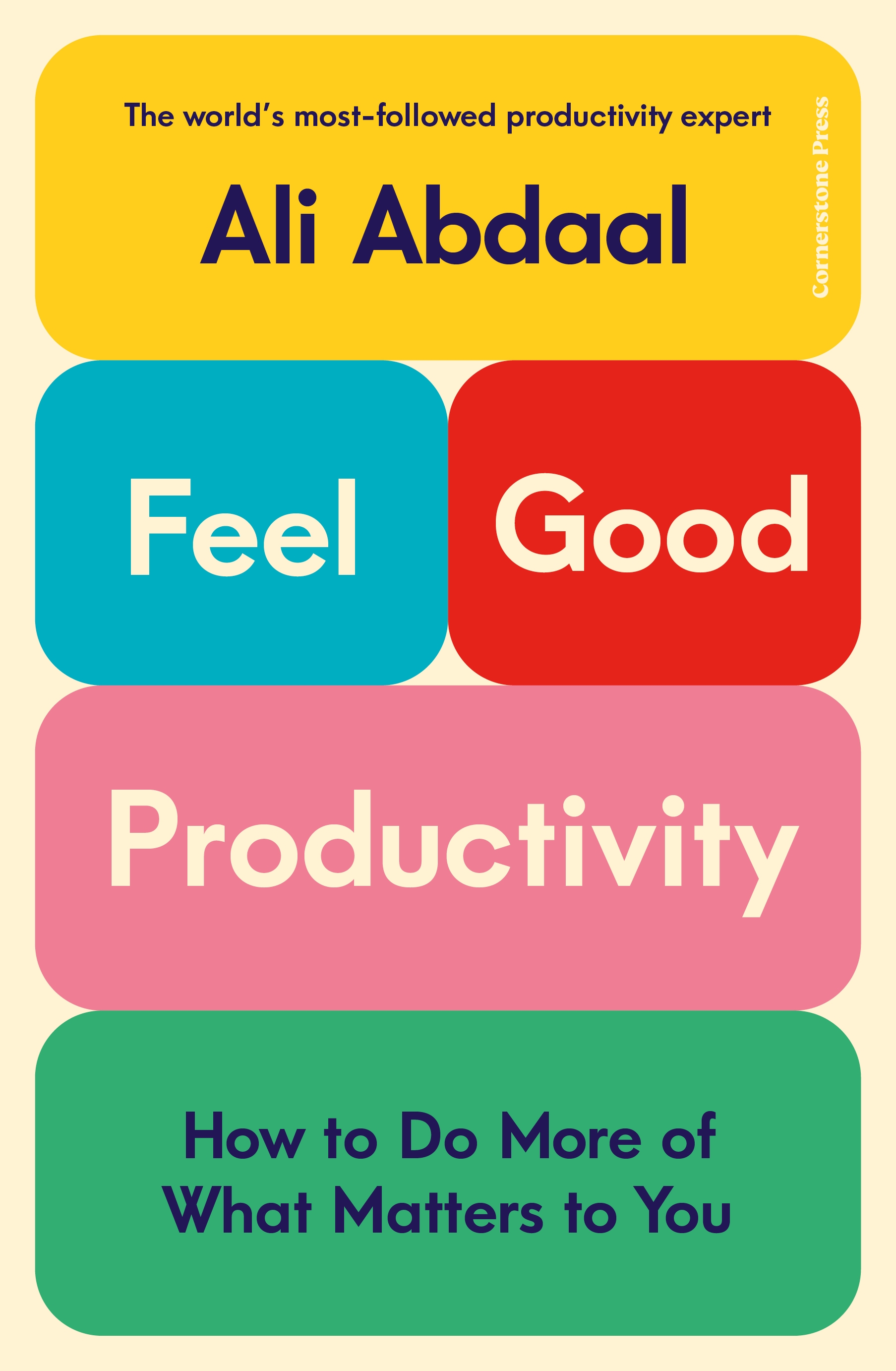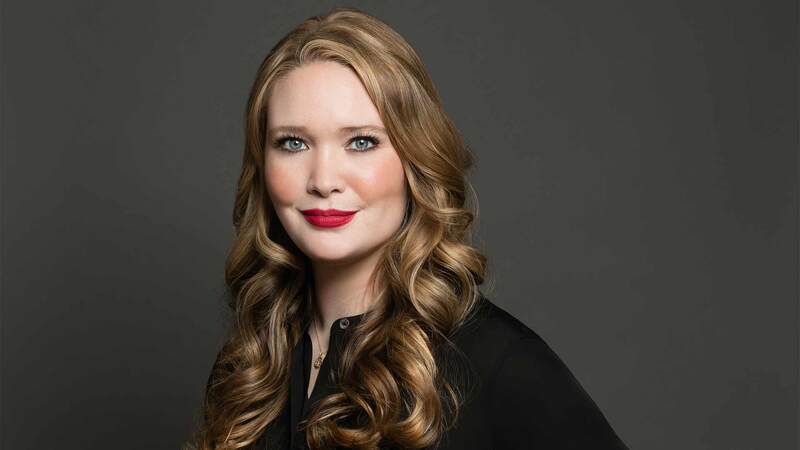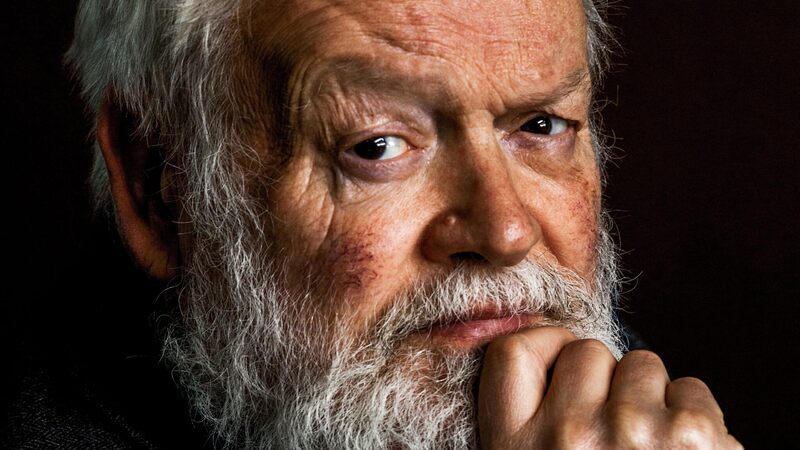You are viewing your 1 free article this month. Login to read more articles.
Ali Abdaal discusses a new type of positive productivity in his new book
 Caroline Sanderson
Caroline SandersonCaroline Sanderson is a non-fiction writer, editor and books journalist. Her books include a travel narrative, A Rambling Fancy: in the F ...more
Ali Abdaal gave up pursuing a career as a doctor in favour of feel-good productivity.

Caroline Sanderson is a non-fiction writer, editor and books journalist. Her books include a travel narrative, A Rambling Fancy: in the F ...more
"Ali Abdaal was one of the world’s greatest teachers. He inspired and educated millions all around the world to build a life they truly love.”
On our Zoom call, the very much alive Ali Abdaal—the world’s most followed productivity expert with more than 4.6 million YouTube followers—is sharing the latest draft of how he would like his funeral eulogy to read after his death. Grandiose though it might sound, argues Abdaal, working out “the life you want people to remember in decades’ time in order to understand the life you should build now” is one of the suggested actions he persuasively sets out in his first book, Feel-Good Productivity: How To Do More of What Matters to You.
Its publication in December is the latest landmark in Abdaal’s remarkably prodigious content creator career, with glowing endorsements already in for the book from Dr Julie Smith, Steven Bartlett, Cal Newport, Mo Gawdat and others.
I was always obsessed with how I could be more productive
Born in Pakistan in 1994, Abdaal came to the UK with his mother and brother in 2003. A “slightly nerdy kid with zero sporting ability and confidence issues”, he nevertheless had, he tells me, two important character traits which set him on his future path. “One, I was always obsessed with how I could be more productive. I used to be addicted to World of Warcraft and so while I wanted to get A* grades and go to university, I also wanted to play video games for four hours a day. So while still at school I was trying to figure out more efficient ways to learn stuff. And secondly, I always enjoyed teaching: back in primary school, people would come to me for tips with their homework and I would just love helping them out.” By the age of 12, the industrious Abdaal had learned to code and was already earning money as a freelance web designer.
Then in 2017, while still a medical student at Cambridge University, he started his YouTube channel and by September 2020 had garnered one million subscribers for his time management, study and investment advice videos. But it was while he was battling the acute pressures of working as a junior hospital doctor that his feel-good revelation came. Abdaal realised that “everything I’d been told about success was wrong. I couldn’t hustle my way to becoming a good doctor and working harder wasn’t going to bring me happiness. And so I started doing a bunch of research around that”.
After imbibing hundreds of personal development books and positive psychology academic papers, the concept of Feel-Good Productivity was born. “If I’m being honest, I’d say that there aren’t a lot of original ideas in the book, but it draws its insights from psychology papers that most people don’t read,” he tells me. While Abdaal has now given up practising medicine to concentrate on his booming business, he retains his General Medical Council licence. “I do have the option of going back if I want to. But for now things are pretty exciting,” he says.
When I ask Abdaal to identify the USP of his productivity philosophy he characterises it as an antidote to hustle culture. “Currently there’s this general sentiment that in order to succeed you have to be very disciplined. Elon Musk gets lionised for likening entrepreneurship to eating glass, and then there’s that Muhammad Ali quote: ‘Suffer now and live the rest of your life as a champion’. It all feels a bit exhausting.” By contrast, Feel-Good Productivity centres on actions that will help you integrate “radical enjoyment” into every project. Along with practical and achievable exercises throughout, Abdaal’s book also marshals an alluring array of evidence to demonstrate that if you own your own mindset and make your work feel good then being productive will take care of itself. From only taking on projects that make you think “Hell, yeah!” or which align with your long-term goals, to the concept of Creatively Recharging, I found it a useful reminder that burnout and a freelance career don’t have to go hand in hand. I tell Abdaal this and he laughs. “I had a session with a psychiatrist who specialises in therapy for online entrepreneurs, and he challenged me to do one thing that evening that would make me feel guilty. So I got a McDonald’s and I watched an episode of ‘Succession’. I hadn’t watched a TV show in years because I’ve been working so hard. So I like that model. Occasionally do something that makes you feel guilty.”
I sometimes get asked on podcasts, why should anyone read? And I say: do you know how many thousands of hours of work goes into a book compared with how little work goes into a YouTube video?
In his final year of working as a doctor, at the peak of the pandemic, Abdaal received an email from Penguin Random House asking him whether he’d ever considered writing a book. “I said no, but that would be cool. I’d heard that a non-fiction book was a collection of blog posts, containing a few key messages and then a load of fluff. So I was like, if that’s true, how hard can it be? I type pretty fast—I can probably write 2,000 words a day—so the book will be done in a month. And then I realised that’s not what writing a book is.” Writing Feel-Good Productivity proved to be a three-year journey, but the book is now set to be published around the globe.
Extract
Did success really require suffering? What was ‘success’ anyway? Was suffering even sustainable? Did it make sense that feeling overwhelmed would be good for getting these done? Did I have to trade my health and happiness for, well, anything?
It would take me a few months. But I was stumbling my way to a revelation: that everything I’d been told about success was wrong. I couldn’t hustle my way to becoming a good doctor. Working harder wasn’t going to bring me happiness. And there was another path to fulfilment: one that wasn’t lined with constant anxiety, sleepless nights, and a concerning dependence on caffeine.
I didn’t have all the answers, not by a long shot. But for the first time, I could make out the beginnings of an alternative approach. An approach that didn’t hinge on exhaustingly hard work, but on what made hard work feel better. An approach that focused on my wellbeing first, and used that wellbeing to drive my focus and motivation second. An approach I would come to refer to as feel-good productivity.
And Abdaal holds fast to the value of a book amid his wealth of online content. “One of the things about content is that it’s very quick. A few hours of research and I can make a video that can potentially be seen by millions. I know there’s no world in which this book is going to be more read than one of my top videos is watched. But there’s something about putting thousands of hours of research into a tangible thing that you’re proud of and that you can give to people. I sometimes get asked on podcasts, why should anyone read? And I say: do you know how many thousands of hours of work goes into a book compared with how little work goes into a YouTube video? With a book you’re literally benefiting from a stupid amount of time, effort, blood, sweat and tears in this one thing that costs £20. Come on!”










